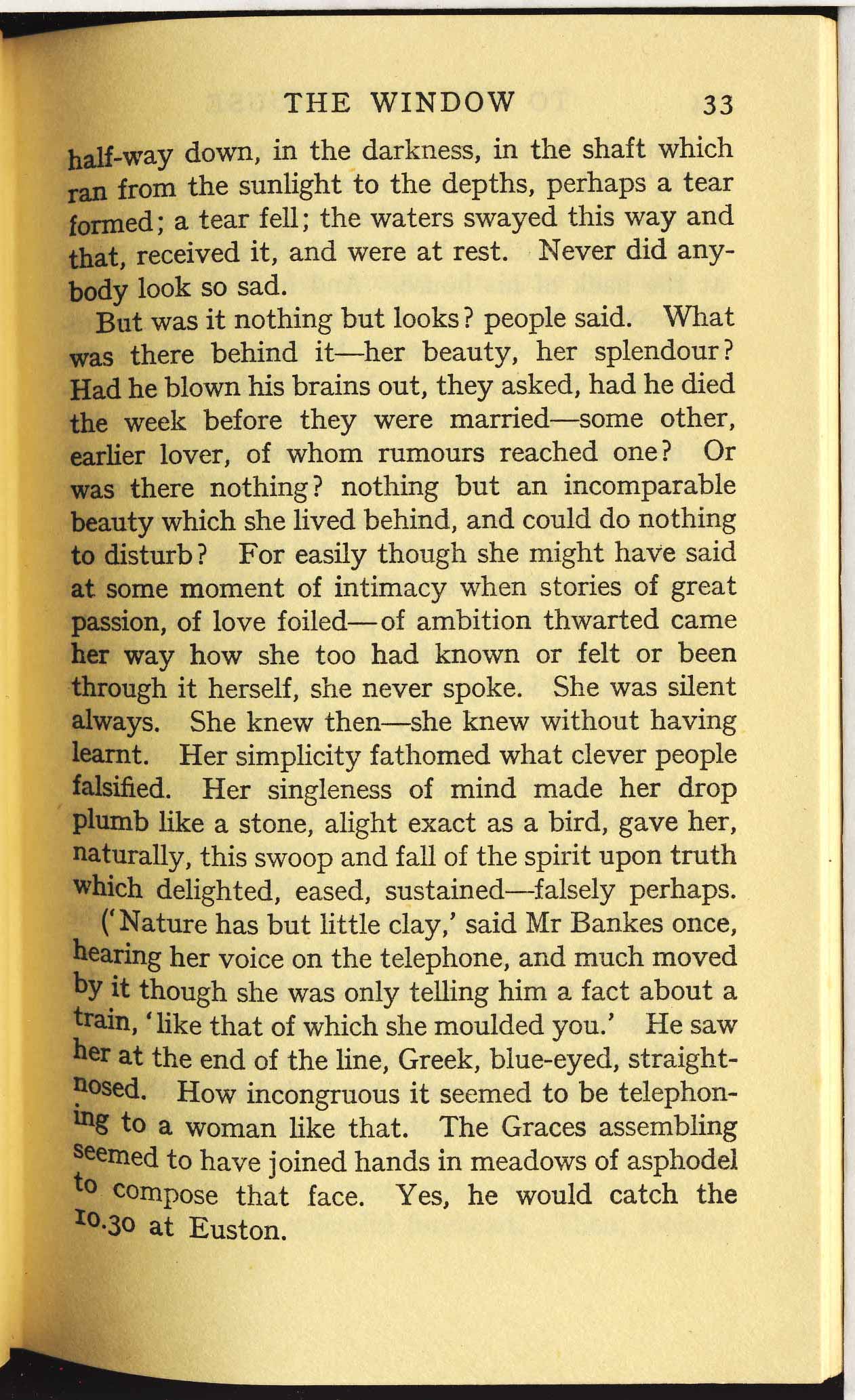Slide to View Image: Opacity 0%

THE WINDOW 33half-way down, in the darkness, in the shaft whichran from the sunlight to the depths, perhaps a tearformed; a tear fell; the waters swayed this way andthat, received it, and were at rest. Never did any-body look so sad.But was it nothing but looks? people said. Whatwas there behind it—her beauty, her splendour?Had he blown his brains out, they asked, had he diedthe week before they were married—some other,earlier lover, of whom rumours reached one? Orwas there nothing? nothing but an incomparablebeauty which she lived behind, and could do nothingto disturb? For easily though she might have saidat some moment of intimacy when stories of greatpassion, of love foiled—of ambition thwarted cameher way how she too had known or felt or beenthrough it herself, she never spoke. She was silentalways. She knew then—she knew without havinglearnt. Her simplicity fathomed what clever peoplefalsified. Her singleness of mind made her dropplumb like a stone, alight exact as a bird, gave her,naturally, this swoop and fall of the spirit upon truthwhich delighted, eased, sustained—falsely perhaps.('Nature has but little clay,’ said Mr Bankes once,hearing her voice on the telephone, and much movedby it though she was only telling him a fact about atrain, 'like that of which she moulded you.’ He sawher at the end of the line, Greek, blue-eyed, straight-nosed. How incongruous it seemed to be telephon-ing to a woman like that. The Graces assemblingseemed to have joined hands in meadows of asphodelto compose that face. Yes, he would catch the10.30 at Euston.









